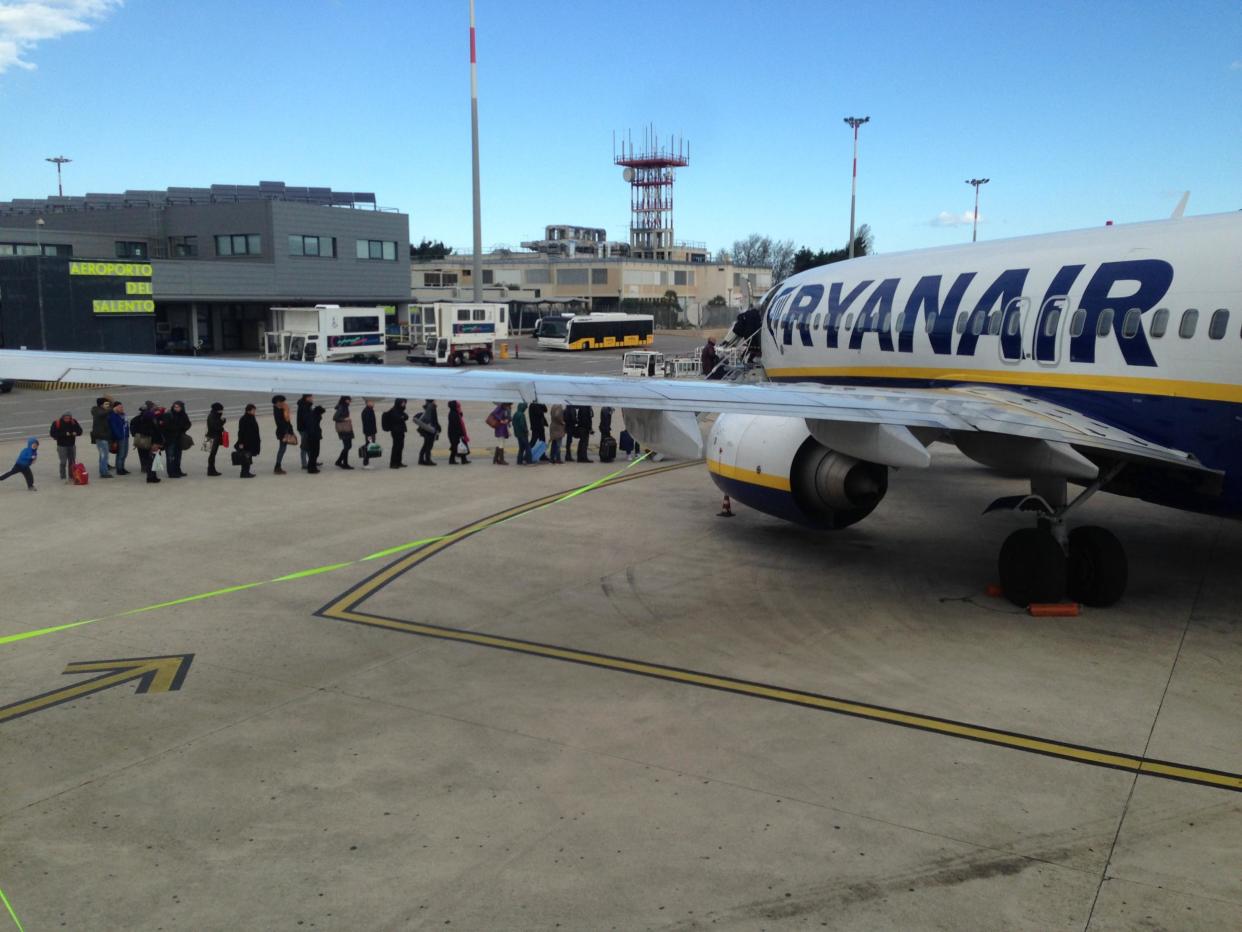I tell brands how to negotiate PR crises for a living – this is what Ryanair needs to do

We all love a good “brand in crisis” story, don’t we? Most weeks these days a PR disaster seems to hit the news: British Airways, United Airlines, Samsung and Sports Direct have all felt the sting recently.
The latest brand “in crisis” is the low-cost airline that we all love to hate, Ryanair. This week its straight-talking boss, Michael O’Leary, has admitted the airline “f***ed up” in its scheduling of staff holidays, forcing it to cancel two per cent of its flights through to the end of October, impacting up to 400,000 passengers.
Usually criticism runs from O’Leary like water off a duck’s back. But in a hastily organised press conference this week, he was, as one reporter put it, “grovelling” in apology.
Indeed Ryanair, Europe’s biggest carrier by passenger numbers, felt less prepared than usual. The original announcement of pilot shortages at the weekend emerged as a much bigger staff shortage by Monday.
In this sense it was not a perfectly handled media story: O’Leary failed to appear in front of the media for a couple of days; and one should always get the bad news out in one go. Ryanair’s share price also saw a dip.
So are we talking about a brand crisis for this distinctive airline?
Let’s put this in some perspective. If one compares this to the footage of a blood-spattered, semi-conscious older man being dragged off a United Airlines aircraft in April, then this hardly registers on a brand damage-ometer.
Of course the United Airlines boss, Oscar Munoz, only compounded that scandal by initially backing the ground staff who so mishandled the man, referring to the passenger – Dr David Dao – as “disruptive”. Eventually he issued a full apology, but not before there was global condemnation and protests.
Another genuine airline crisis was British Airways’ shoddy response, in May, to a huge computer system failure that left thousands of families stranded, without any information, at Heathrow. This came off the back of months of criticism from passengers and media for BA’s shrinking legroom and the introduction of paid-for food on short-haul flights, compounding the crisis.
Yes, Ryanair’s cancellations will cause short-term misery but these unlucky passengers amount to less than one per cent of flights taken by Britons this year. If the airline now gets its act together, this will soon be forgotten. That is not to say, however, that Ryanair’s wider brand does not have some serious challenges.
The airline’s formidable expansion and financial growth have thrown up a marketing conundrum. The central brand promise of “low cost and punctual” is clear and easy to understand. Generally if you can get passengers to their destinations safely and on time – and to an increasing array of destinations – they will forgive you the occasional insult.
But as the airline has become an airline of choice for businesspeople and frequent leisure flyers looking for such punctuality, Ryanair has recognised the need to be a little, er, nicer.
In 2014 O’Leary acknowledged this, introducing sleeker cabins and faster boarding for business flyers. He even admitted that being “nice” to customers had business benefits he hadn’t previously foreseen. Of course all this is consistently delivered with O’Leary’s trademark twinkle in the eye. It is still “on brand”.
And yet one feels Ryanair’s robust marketing model of the past 20 years is starting to creak in places, particularly with the emergence of another aggressive low-cost carrier in the form of long-haul specialist Norwegian Airlines.
It’s all very well to adopt a “treat them mean” attitude to staff or customers when the competition lags behind and lacks the ability to poach them.
Now Norwegian, in budding alliance with easyJet, is starting to do just that. O’Leary admits the Scandinavian carrier has poached hundreds of its pilots of late. So the brand is going to need to do more crisis aversion PR than usual.
David Poole is the co-founder of LIFE

 Yahoo News
Yahoo News 
